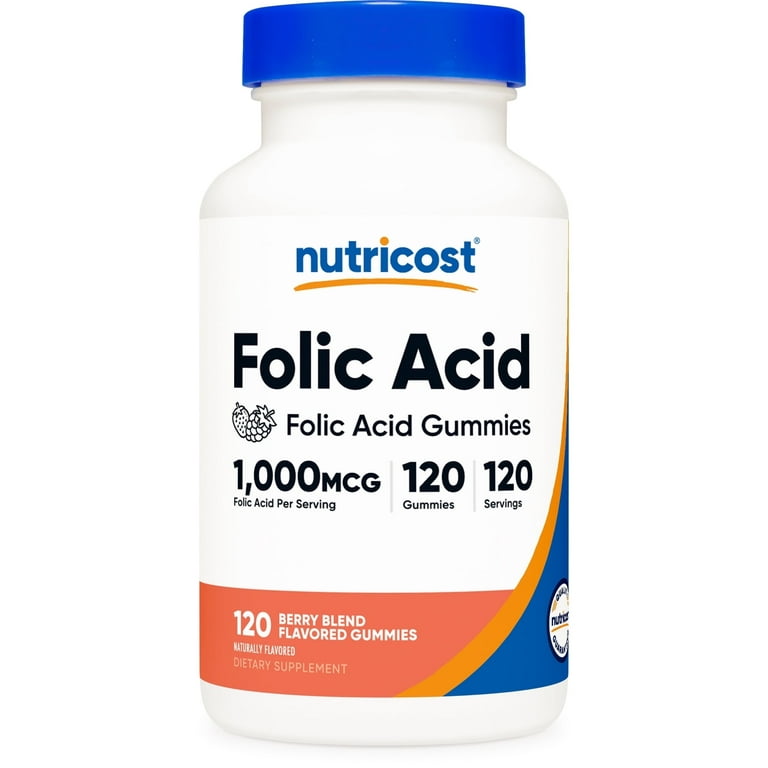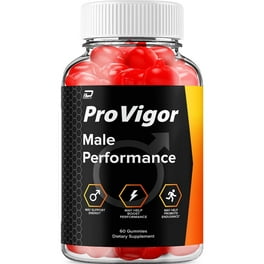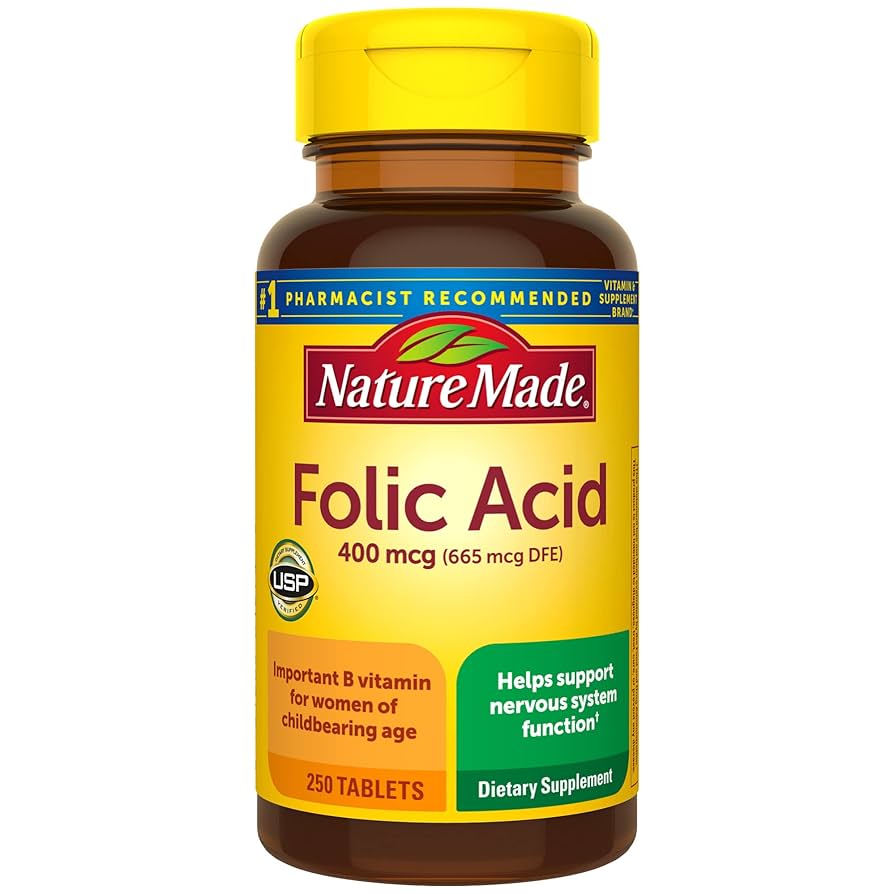
Folic Acid
by Vitacore Nutrition
Key Benefits
- Supports healthy cell growth
- Promotes DNA synthesis
- Reduces risk of neural tube defects during pregnancy
- Contributes to cardiovascular health
Product Overview
Folic Acid: An Essential Nutrient
Folic acid, also known as vitamin B9, is a crucial nutrient involved in numerous bodily functions. It plays a vital role in cell growth and division, DNA synthesis, and red blood cell formation.
Why is Folic Acid Important?
- Prenatal Health: Folic acid is particularly crucial for pregnant women as it helps prevent neural tube defects in developing fetuses.
- Cell Growth: It supports healthy cell growth and regeneration throughout the body.
- DNA Synthesis: Folic acid is required for the synthesis and repair of DNA.
- Cardiovascular Health: It contributes to maintaining healthy homocysteine levels, which are important for heart health.
Who Can Benefit from Folic Acid?
- Pregnant women or those planning to become pregnant
- Individuals with certain medical conditions that affect nutrient absorption
- People with diets low in folate-rich foods
What Makes Vitacore's Folic Acid Different?
Vitacore Nutrition's Folic Acid is a high-quality supplement designed to provide an optimal dose of this essential nutrient. It is third-party tested for purity and potency and manufactured in a GMP-certified facility. Are you looking for a reliable way to support your health and well-being? Explore how folic acid can benefit you!

How It Works
How Folic Acid Works:
Folic acid is converted into its active form, tetrahydrofolate (THF), within the body. THF acts as a coenzyme in various metabolic reactions, including:
- DNA Synthesis: THF is essential for the synthesis of purines and pyrimidines, the building blocks of DNA.
- Amino Acid Metabolism: It plays a role in the metabolism of amino acids, such as homocysteine.
- Red Blood Cell Formation: THF is required for the formation of healthy red blood cells.
By participating in these processes, folic acid contributes to healthy cell growth, DNA replication, and overall well-being.

Benefits & Research
Benefits of Folic Acid:
- Reduces the risk of neural tube defects during pregnancy.
- Supports healthy cell growth and development.
- Promotes DNA synthesis and repair.
- Contributes to healthy red blood cell formation.
- May help lower homocysteine levels.
- Supports cardiovascular health.
- Can improve cognitive function.
- May reduce the risk of certain cancers.

Potential Side Effects
Possible Side Effects:
Folic acid is generally considered safe when taken at recommended doses. However, some individuals may experience:
- Nausea
- Loss of appetite
- Bloating
- Gas
- Difficulty sleeping
Rarely, allergic reactions such as skin rash, itching, or difficulty breathing may occur. If you experience any of these symptoms, discontinue use and consult a healthcare professional.

Frequently Asked Questions
What is the recommended daily intake of folic acid?
The recommended daily intake of folic acid is 400 mcg for adults. Pregnant women are advised to take 600 mcg daily to prevent neural tube defects in their babies. Consulting with a healthcare professional is recommended for personalized dosage recommendations.
Can I get enough folic acid from food alone?
While some foods are rich in folate (the natural form of folic acid), it can be challenging to obtain the recommended daily intake from food alone. Supplementation may be necessary, especially for pregnant women.
What are good food sources of folate?
Good sources of folate include dark leafy green vegetables (spinach, kale), citrus fruits, beans, lentils, and fortified cereals.
Is it possible to take too much folic acid?
Taking excessive amounts of folic acid can mask vitamin B12 deficiency, which can lead to neurological damage. It is important to adhere to recommended dosage guidelines and consult with a healthcare professional if you have concerns.
Can folic acid interact with medications?
Folic acid may interact with certain medications, such as methotrexate (used to treat cancer and autoimmune diseases) and some anti-seizure medications. Consult with your doctor or pharmacist if you are taking any medications before starting folic acid supplementation.
What is methylfolate and how is it different from folic acid?
Methylfolate is the active form of folate that the body can directly use. Some individuals have genetic variations that make it difficult for them to convert folic acid into methylfolate. In these cases, supplementing with methylfolate may be more beneficial.
Should I take folic acid with or without food?
Taking folic acid with food is generally recommended to improve absorption.
Does folic acid help with hair growth?
Folic acid is essential for cell growth and may indirectly contribute to hair health, though it isn't its primary function. If you have a deficiency, it might aid hair health.
Detailed Scores & Effectiveness
Product Scores
Effectiveness by Goal
Customer Reviews (6)
Great product for pregnancy
I started taking these before I conceived and I feel so much better knowing I'm getting enough folic acid.
Easy to swallow
The tablets are small and easy to swallow, which is a plus for me. No aftertaste either.
Good value
Great price for the quantity. Happy with my purchase.
Noticeable difference
I've been taking these for a month and I feel like my energy levels are better.
Excellent supplement!
The supplement has helped me a lot
The tablets are a bit small
It could be a bit bigger
Product Specs
Key Ingredients
Folic Acid
Grade AMicrocrystalline Cellulose
Grade N/ADicalcium Phosphate
Grade N/AMagnesium Stearate
Grade N/ACertifications
Important Warnings
- • Consult with your doctor before use if you are taking any medications or have any medical conditions.
- • Keep out of reach of children.
- • Do not exceed recommended dosage.